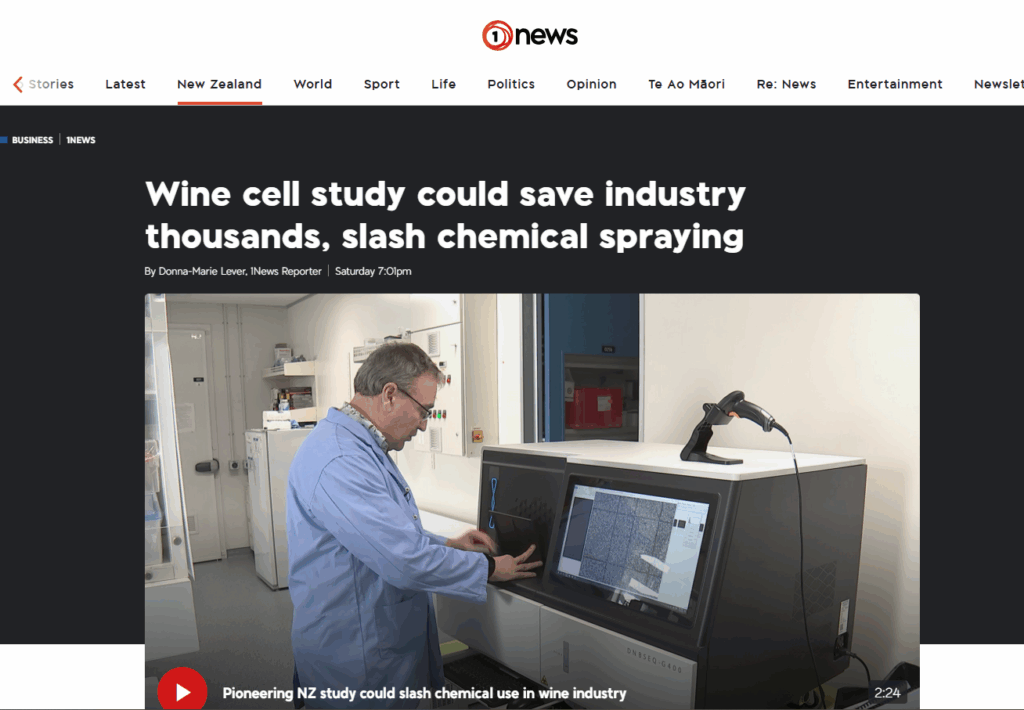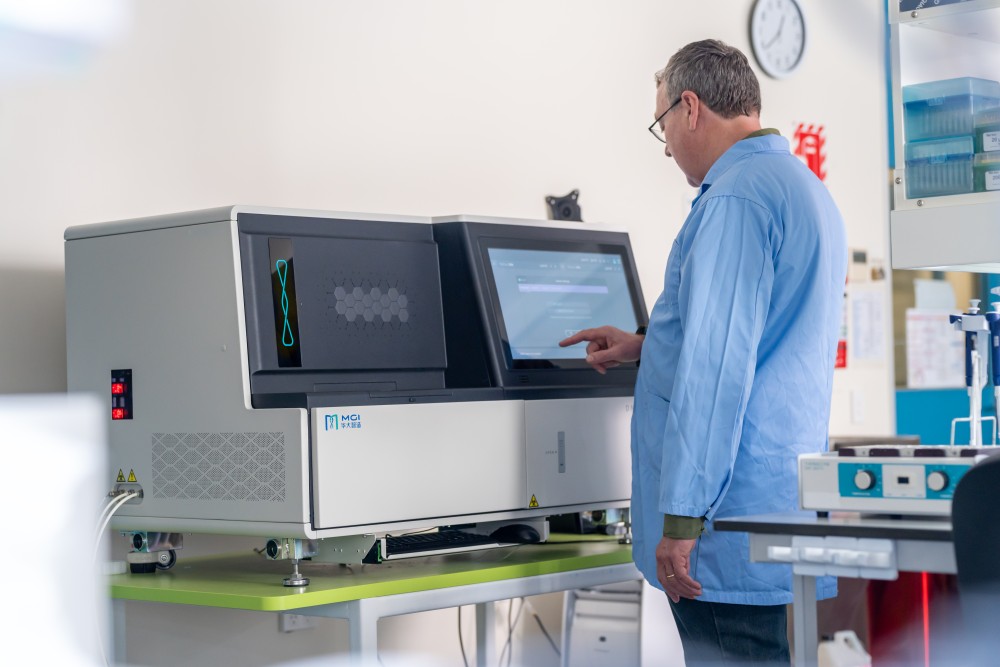Genomic Testing Set to Slash Chemical Use in New Zealand Vineyards by up to 80%
NZ Scientists in Pioneering Genomic Study to Reduce Impact of Diseases in Primary Sector
A revolutionary study underway in Canterbury may soon help New Zealand’s billion-dollar wine export sector reduce its reliance on chemical sprays through the use of advanced genomic testing. The initiative has the potential to lower fungicide use by up to 80%, supporting more sustainable and cost-effective wine production.
Reducing Chemical Dependency Through Natural Genetics
New Zealand agriculture currently uses around 3,400 tonnes of pesticides each year. According to the US Environmental Protection Agency, a significant proportion of these substances, including 60% of fungicides and 72% of plant growth regulators, are suspected carcinogens. These chemicals are widely used in viticulture, an industry that generated $2.1 billion in export revenue last year and employs thousands across the country.
Scientists at Lincoln University are now working to shift this paradigm. Using cutting-edge genomic sequencing, the team is identifying natural traits that make grapevines more resistant to disease. This advancement could lead to more resilient crops and significantly lower chemical input for growers.

Next-Gen DNA Technology Enhancing Research
Central to this effort is the newly installed MGI DNBSEQ-G400 genome sequencer. This next-generation DNA analysis machine is enabling researchers to run thousands of tests quickly and affordably—an upgrade from previous processes which were slower and more limited in scope. Previously, only hundreds of vines could be tested annually; now, more than 50,000 can be processed each year.
The new platform allows researchers to scan for the presence and spread of diseases like powdery mildew and mealy bug in real-time, helping growers move from broad-spectrum, scheduled spraying to highly targeted, data-driven treatments.
Reducing Costs While Enhancing Sustainability
Associate Professor Christopher Winefield of Lincoln University’s Department of Wine, Food & Molecular Biosciences says the implications are profound: “By identifying grape varieties that are naturally disease-resistant, we can dramatically reduce chemical use. Even removing a single spray late in the season reduces cost, chemical residue in wine, and environmental impact.”
He adds, “This technology shifts us from a system of reactive spraying to proactive, precise management. It’s not genetic modification—it’s about harnessing natural variation to breed better crops.”
Wider Agricultural Applications and Commercialisation
Backed by MGI Australia, the project’s reach is expanding. Dr. Bicheng Yang, MGI’s director, says the partnership aims to support sustainable agriculture globally. “This is a real-world example of how genomics can transform farming practices. We’re making science accessible to everyday growers,” he says.
As part of the project’s next phase, researchers are developing a commercial venture to bring real-time genomic testing to farmers nationwide. The focus will be on sectors like viticulture, horticulture, and dairy industries that often rely on blanket chemical treatments due to a lack of data.
Building a Genomic Future for NZ Primary Industries
The ultimate goal, says Winefield, is to bring the cost of testing down to a level that makes it viable for routine use on farms. “We’re taking this science out of the lab and into the field. It will help inform breeding programs for wine, beer, and horticulture while lifting the productivity and resilience of our food systems.”
He adds that climate change is intensifying disease pressures, making traditional methods less reliable. Genomic monitoring offers a way to respond with precision, spotting threats early and enabling smarter, adaptive strategies. The research could serve as a global model, with New Zealand’s diverse climates offering a strong foundation for exporting agricultural genetic insights.
“New Zealand may not feed the world by volume, but we can absolutely feed it with smarter science,” says Winefield.
To learn more about how PR helps future-focused science reach the right audience, visit our PR agency Auckland service page.

As Seen in the Media
This story has been featured extensively in leading media outlets including TVNZ’s 1News, highlighting the national significance of agricultural innovation.
About Impact PR
Impact PR is a specialist New Zealand public relations agency with deep expertise in food science, agritech, and sustainability communication. We help research-led organisations translate complex science into powerful media stories that resonate with the public and industry alike.
To learn how expert media strategy can amplify scientific innovation, visit our PR agency Auckland service page.
